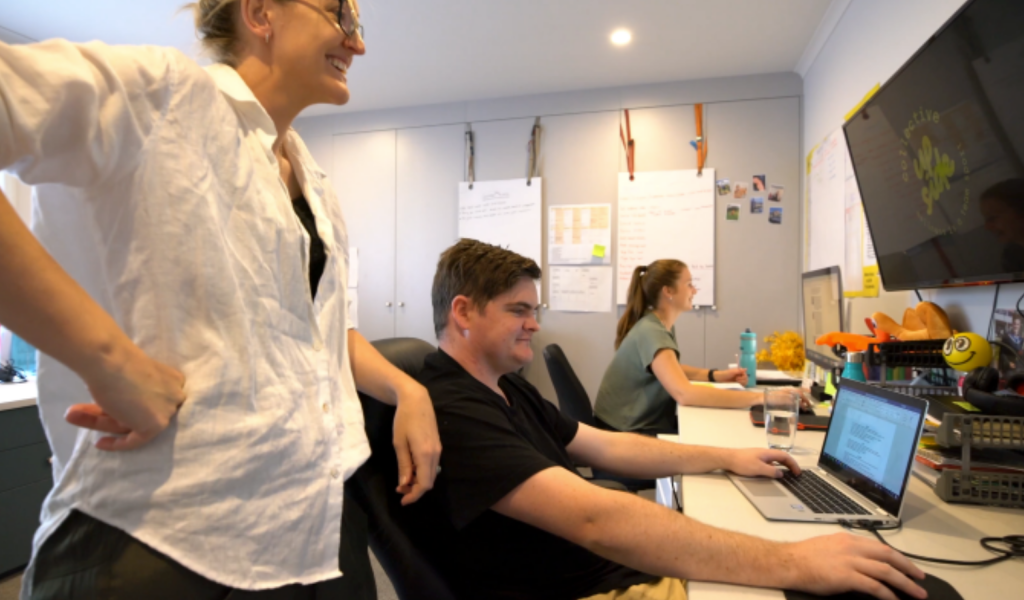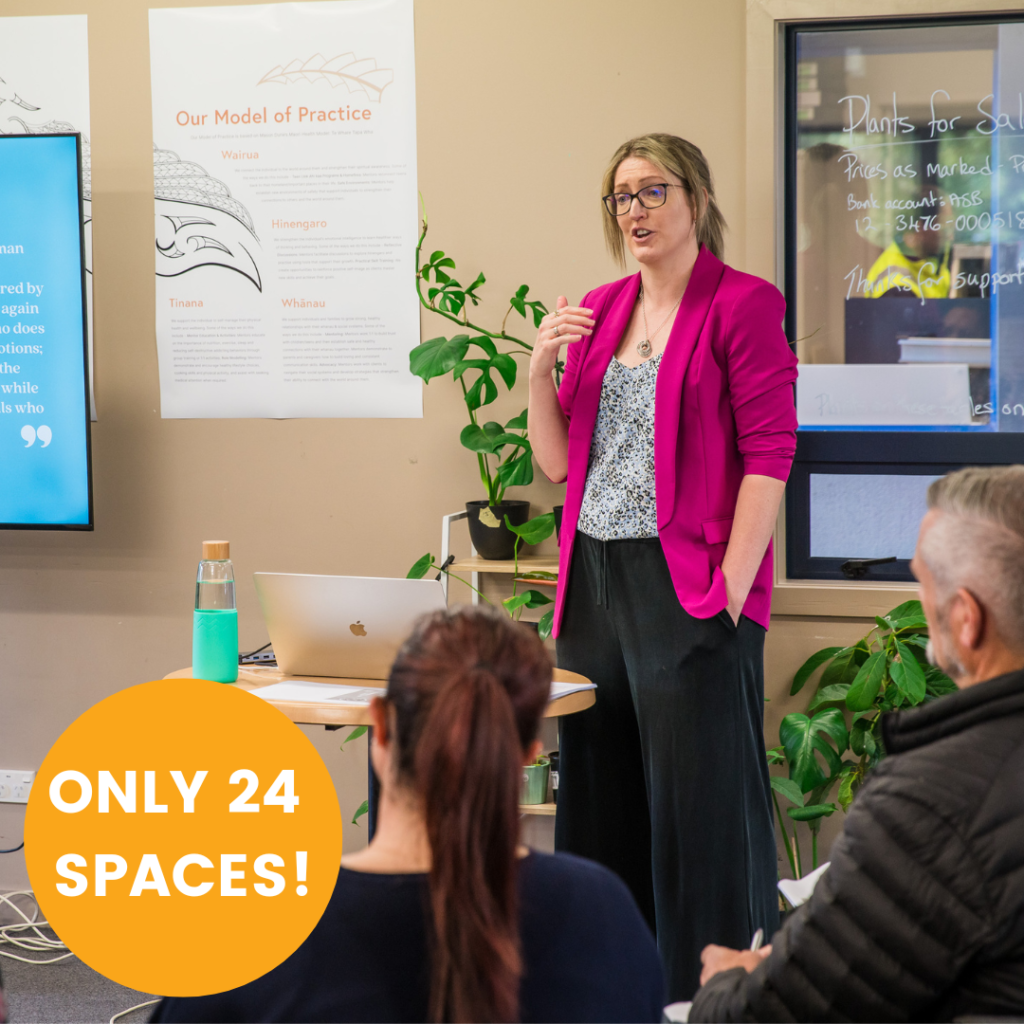Written by Cory Watt & Emily Ussher
Do you talk about mental health at your workplace? Do you have open conversations about how you are feeling? We talk about the need for this shift and how you can shift the narrative of mental health in your workplace!
Home away from home
We see our workmates just as much or more (in some cases) than our own family. So why do we find it hard to open up to them about how we are truly feeling? Creating a safe space within your work environment is the key for people to feel comfortable to be able to share stories about themselves and family members when they are going through some tough times.
Everyone’s journey’s are different
You are not always going to understand but you can empathise with peoples stories and some of the things they might be going through. Someone without kids is not going to understand how mentally challenging it can be to juggle a work/life balance and still get time for yourself. So, if we are all on our individual journeys, how can we build up a trusting workplace environment to make sure everyone feels comfortable enough to share what is going on in their lives and know that everyone is there to support them. As reported by StatsNZ in 2019, employees who have good overall workplace relationships (e.g. a good or very good relationship with their manager, and a good or very good relationship with their colleagues, where applicable) had job satisfaction rates of 91 percent, so how do we use this?
Five strategies from our podcast with Carol Brown
Carol Brown talks about five strategies in her interview to help lead with empathy and understanding which is what mental health directly impacts! Carol talks about how to lead as a human and how to support other humans to be as awesome as they possibly can be to help your fellow employees in need. Let’s dive into these and talk about their benefits for your overall workplace hauora!
1. It’s not about the metrics it’s about the humans.
Your number one priority should be to look after your people. Once you take care of your people, the metrics will speak for themselves. When employees realise that everyone, including the managers, really care about who they are as a person and are trying to understand what they are going through, this sparks the confidence and pathways for vulnerable and open conversations to be held at the workplace.
This doesn’t mean that every day you need to be sharing vulnerable conversations or personal stories, it simply means that we need to check in with our people more often, ask them how they are and listen to them and their responses. Showing that we care about people often means listening to what’s going on for them and being there for them to talk about their current situation.
2. Everyone’s drive is going to be different
Understanding what really makes your people tick! Not everyone likes going out for a few beers, or a shared lunch. If you put in the effort and know exactly what will get your employees going, motivation levels will go through the roof! I’ll give you an example. Old mate may be working hard on a project that they really need to get past the line by next week. You have created a motive that if it gets done there will be a shared lunch for everyone at the end of next week. Old mate isn’t too bothered by this and won’t want to put in that extra effort, but if you knew exactly what made him tick, such as football, and there was a Champions league football game streaming during work hours for his team, offer to play that in the background and watch them try and smash through their workload quicker. Both will cost the same but you will gain more motivation with the one that is most attractive to the employer.
How can you find out this information from your employees?
This can be something simple as sending out a questionnaire per employee that asks:
- What are their favourite hobbies?
- What food do they like?
- Are they on a diet?
- What do they like doing in their spare time?
- What is something they would love to do if they had the spare time?
Keep these answers and check in with them on your staff one on one’s, and make sure to update it with anything new. Then when they are having an off day you can pull something out of this list and get their motivation or enjoyment levels up.
3. Be honest
Being transparent is critical for team success. You can always tell when someone is trying to beat around the bush and it is hard for people to open up with employers who try to do this. Being honest with an explanation will get you a lot further, for example saying I can’t give you this answer right now because … or I don’t think this idea is going to work at this stage because… Doing this when giving feedback or responding to the team is important to provide context for the employee and something to think about.
Simply, shutting down someone and not giving them an answer as to why this was not going to work could have a massive detrimental effect on employees and their future input and ideas. If you are honest and provide perspective and reasoning you’ll also provide learning and a feedback relationship that can develop into the future!
4. Build trust
Trust that your employees will do as they are supposed to without micromanaging. Being flexible where you can, will allow your employees to not stress and rush something to get it over the line that will allow them to take their time and get it done to the best of their ability.
Be open to feedback about anything. Employees knowing that they can go to their employers and trust that they will keep this information to themselves instead of sharing it with others, will be a factor for understanding how to connect to your employees on a deeper level.
5. Genuinely care
Don’t settle for an “I’m Good” or “Everything’s ok” tick of the box as an answer when talking to employees and staff mates! If you are feeling that there is something a little more going on, dive deeper and ask:
- How are they really feeling?
- Is everything ok at home?
- Is work getting too much?
- Is there anything I can do to help?
There is importance in knowing someone is there to listen, even if they personally, are not ready to share just yet, they will realise that if something is wrong that they can go to you when they are ready. Knowing that nothing is too much of a trouble to deal with and sometimes some of the news that they could tell you could be massive. A key attribute would be to make sure you can show empathy to sympathize with them after they tell you and not stress out about how you are going to deal with the situation. The majority of the time people just need another person to talk to, that isn’t a family member to get certain things off their chest.
Summary
Using these 5 steps and implementing some of the strategies can help create an environment within your workplace that enables everyone to feel comfortable to share what is going on in their lives. Nearly 1 in 4 New Zealand adults (aged 18 and over) experienced ‘poor’ mental wellbeing, as reported by StatsNZ in 2018, that is a scary number! A number that we can help reduce by making sure we are creating comfortable, safe and open environments in the workplace so that we can help spread awareness about the importance of these conversations and help our colleagues in need!
Please share:
Share this blog with someone you think could benefit from reading a bit about mental health in the workplace and how to harvest meaningful relationship with employees and staff mates!
References:
Our Interview with Carol Brown
Statistics New Zealand: https://www.stats.govt.nz/information-releases/wellbeing-statistics-2018













 Date: Tuesday, 27th May
Date: Tuesday, 27th May Time: 9:30am – 11:30am
Time: 9:30am – 11:30am Location: Te Kete Aronui – Rototuna Library
Location: Te Kete Aronui – Rototuna Library